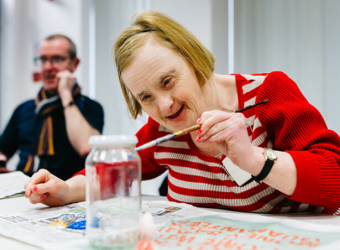What are atrial fibrillation and stroke?
Atrial fibrillation is a type of irregular heartbeat in which the heart pumps faster than it should.
This reduces the heart’s efficiency, which means that blood clots are more likely to form in the atria, increasing the risk of a stroke.
A stroke is a potentially life-threatening condition in which the blood and oxygen supply to part of the brain is cut off.
What causes atrial fibrillation and stroke?
Atrial fibrillation can occur in anyone but there are certain risk factors that can increase a person’s chances of developing it:
- Heart disease
- High blood pressure
- An overactive thyroid gland
- A lung infection
- Pulmonary embolism which is a blood clot in the lung
Anyone can also have a stroke, but atrial fibrillation does increase a person’s chances of having one.
An irregular and fast heartbeat can cause blood clots to form in the heart. These can then travel to the brain through the bloodstream. If one blocks an artery leading to the brain a stroke can occur.
What are the symptoms of atrial fibrillation and stroke?
The symptoms of atrial fibrillation include:
- Palpitations
- Breathlessness
- Chest pain
- Fatigue
The word FAST can be used to help you to remember the main symptoms of a stroke:
- F- Face. The whole face or just the mouth and/or an eye may droop on one side and the person may be unable to smile.
- A – Arms. Weakness or numbness in one arm resulting in the person being unable to hold their arm up and keep it there.
- S – Speech. Their speech may be slurred or they may not be able to talk at all, or they may have difficulty understanding others.
- T – Time. If someone is showing any symptoms of a stroke 999 should be called immediately.


















